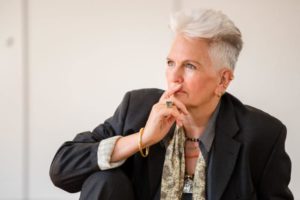Credentials
Self-transformation is not just about changing yourself. It means shifting yourself to a completely new dimension of experience and perception.”

Full details of my learning journey below.
- Bachelor of Science in Business Management and Sociology (Royal Holloway University – University of London)
- Professional Certified Coach (PCC ICF)
- Certificate in Neuroscience-based Coaching (Dr Paul Brown, Organisational Neuroscience, Monarch Business School Switzerland)
- Certificate in Positive Psychology Coaching (Positive Acorn – Dr Robert Biswas-Diener)
- Certificate in Transformational Coaching (Nicholas Janni)
- Certificate in Somatic Coaching (Strozzi Institute)
- Certificate in Action Learning Set Facilitation (3D Coaching)
- Certificate in Thinking Partnerships (Time to Think – Nancy Kline)
- Certificate in Holding Space Coaching & Facilitation (Centre for Holding Space)
- Accredited Professional Keynote Speaker (Keynote Womean Speakers)
- Certificate in teaching pranayama/breathwork (Carolyn Cowan & Yoga Alliance)
Coach Training
Bailey Balfour - Jean Balfour
Why?
I was offered an opportunity to be trained and certified as a coach. As soon as the programme started, and I discovered what coaching was, my mind and eyes opened wide. I saw myself making a huge step closer to my life’s calling. I had found, in coaching, the foundations of my work.
What did I learn?
Learning to be a coach taught me more about myself in a year than I had discovered in my lifetime. It quickly became clear to me that to coach a client effectively and help them make changes in their life, I needed to do my own inner work first. For me, that meant developing a high degree of self-awareness and emotional intelligence.
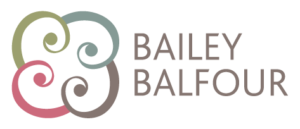
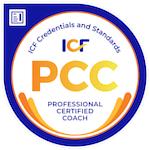
Positive Psychology
Positive Acorn – Dr. Robert Biswas-Diener
Why?
I stumbled across the field of positive psychology when I was learning mindfulness. I started with a few online self-lead online courses and was subjugated by the latest findings. I adopted some of the practices and experienced the benefits first hand. I knew at that moment that I wanted to learn more about Positive Psychology and to weave the findings into my coaching and group work.
What did I learn?
I was amazed to find out how little research had been done until the late 90s on identifying what makes human beings flourish. The traditional field of clinical psychology until then had focused on what’s wrong with people and how to make them feel better.
Learning how to identify and work with strengths, find courage, develop curiosity, manage emotions, use a solution-focus approach to problem solving, help clients find happiness at work, construct positive self-identities, with the son of one of the founding fathers of Positive Psychology, was a treat.
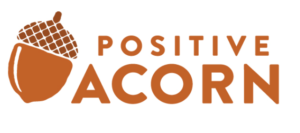
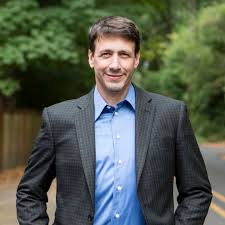
Neuroscience
Dr Paul Brown (Organisational Neuroscience, Monarch Business School Switzerland)
Why?
After my initial coach training, I wanted to study the biology of behaviour through the lens of neuroscience, to better understand what goes on in our human mind and how we can use it to bring about change.
What did I learn?
Through this course I learnt how the brain functions, how our actions and behaviors, which we tend to think are driven by our conscious thoughts, are in fact driven by our past and present emotions. From that moment, working with emotions in coaching, become a priority.
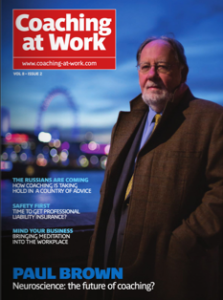
Neuroscience of Change
Coaches Rising
Why?
2 years after the first course, with Dr Paul Brown, I wanted to learn about the latest findings in neuroscience, as this field is evolving very fast.
What did I learn?
I learnt through Amanda Blake, Ann Betz , Dr Richard Boyatzis, Dr Alan Watkins, Dr Alan Fogel, Dr Rick Hanson, Dr Dan Siegel, about the how the different parts of the brain operate as an orchestra, each having a very specific role to play in our human operating systems. , how it all relates to the emotions, the autonomic nervous system and the physical sensations we experience. I discovered different tools and approaches that can be used in working with clients to activate different parts of the brain and lead to faster insights and long-lasting change.
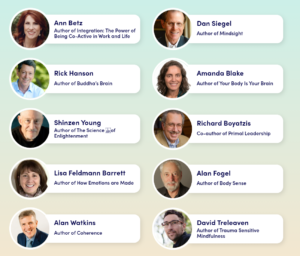
Holding Space
Centre for Holding Space - Heather Plett
Why?
A dear friend told me about this course and something, inside of me, told me I had to sign up for it. I was blown away when I found out that it would take 6 months to learn about the intricacies of holding space (cf. being fully present) for myself and others. At that moment, I knew I was missing something in my initial training.
What did I learn?
When I took this course, I understood that coaching, and, in general, working with individuals and groups, involved far more than mastering communication skills and coaching models.
I learnt how crucial it is to be able to hold space for ourselves. In others words, to have self-care practices in place, to have solid boundaries, to recognize our biases, to understand the process of change, before we can work effectively with others. In this course, I learned about the power of being in circles, the liminal space we cross when we undergo a change in our lives, and how to pay attention and address hidden dynamics that may be at play when working with others.

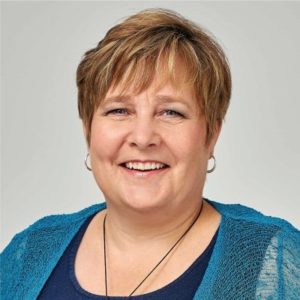
Embodied Transformation
Strozzi Institute / Coaches Rising
Why?
I wanted to bring in the body in my coaching sessions and so I signed up to this course, delivered by the Strozzi Institute, who are thought leaders and practionners, in the art of somatic (body based) coaching.
What did I learn?
I learnt, with fascination, how our bodies are literally shaped by our life experiences. Simple centering practices, repeated daily, can help us come back into our bodies and connect to what we value and what matters. Moreover, I discovered how, by making subtle shifts in our physicality, we can learn to change our behaviours and habitual responses to stressful situations, and even access our optimal state of being


Transformational Coaching
Nicholas Janni
Why?
Learning about holding space and my practice of mindfulness made it clear that I wanted to learn more on the power of presence. Life pointed me in the direction of Nicholas Janni, a student of Thomas Hubl, who is a Master in the art of presencing and an expert on Transformational Coaching & Collective Trauma. When I listened to Nicholas on a podcast and watched a few videos of him teaching at the Oxford Said Business School, there was no doubt that I was going to study with him.
What did I learn?
I learnt the power of being fully present with my clients and simply witnessing what is. It’s difficult to describe how that feels for the recipient or even the effects it has on someone’s personal healing and transformation process. I have been applying what I have learnt for 18 months in a triad that meets weekly. It has changed and continues to change my life I have experienced what it feels like to be accepted, to be fully seen, heard, felt with all my emotions, by another human being, when there is no judgment or urge to fix. This simple, yet incredibly difficult, act, of deep human connection, lowers the defensive mechanism and opens up the entire human system to its fullest potential, where lies our innate resourcefulness. Mind blowing!

Conscious Leadership
Conscious Leadership Group
Why?
During the lockdown, I rediscovered the work of Jim Dethmer and Diana Chapman. I was so excited when I found out that they were moving their offering online that I decided to go into the depth of their teachings.
What did I learn?
I learnt a whole new way of looking at Leadership. Their teachings are so simple to understand, yet revolutionary. It’s what I would call the art of mindfulness applied to leadership. This course was an invitation to look at personal human experiences, at work or outside of work, through a very different lens; viewing events as a series of opportunities to learn from and learning how to take 100% responsibility for shaping our experiences. Their most powerful tool, which for me is the greatest leadership tool I have come across, is a horizontal line which comes with the questions: Am I above (coming from curiosity and openness) or below (coming from a need for control, security, or approval) the line, in a given situation? And do I want to shift?
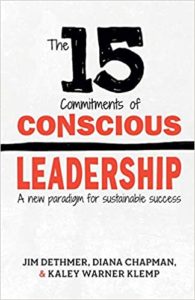
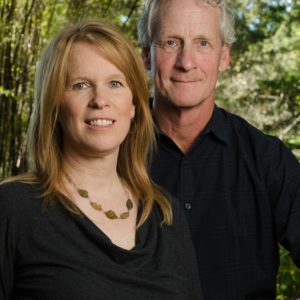
Action Learning
3D Coaching - Su Blanch
Why?
I wanted to bring coaching into groups as I believe in the power of coactive intelligence and have a positive bias towards coming into circles. Action Learning was a given.
What did I learn?
I learnt the power of short, focused group coaching sessions (20 min), which through a rigorous process and the strong safe container of the group, lead participants to have powerful insights and make giant leaps in the direction of their desired goals.
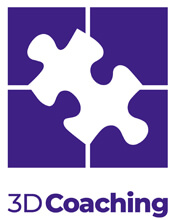
Breathwork
Carolyn Cowan
Why?
Pranayama, or control and manipulation of the breath, is one of the many practices of the multi-faceted system of yoga. The breath is a vital life force, and these various practices bring about many benefits including the management of stress, clarity of mind, and hormonal as well as lung health. The breath regulates our body on its many planes – emotional, physical, spiritual and psychological. How we breathe gives us insight into the relationship we hold with our own state of being.
What did I learn?
We can change our state of stress, anxiety or anger at any point if we have learned how to work with our breath. In these extreme times, this is a tool of great importance.

